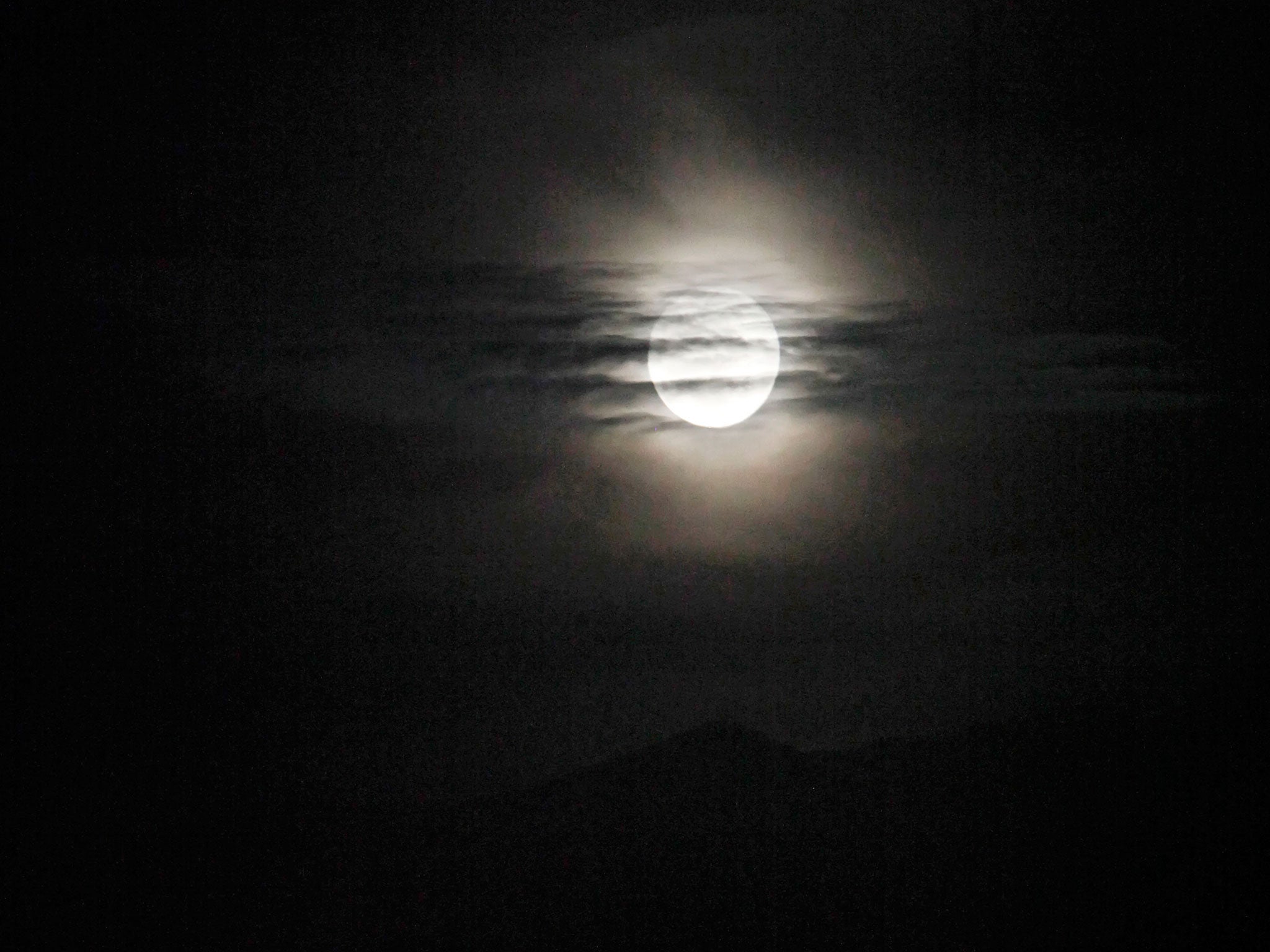Full moon appears over the UK on Christmas Day for the first time in 38 years
There won't be another Christmas full moon until 2034 - so make sure you go out and see it

Today's full moon will be the first to appear on a Christmas Day in 38 years - and it won't happen again until 2034, so you should take your chance to see this rare sight while you can.
As US space agency Nasa says, the full moon will appear brightest at 11:11pm GMT, but it'll be full throughout the day - so if you woke up early to see if Santa had been, you may have caught a glimpse of it.
This full moon is the last of the year, and is nicknamed the 'Full Cold Moon', since it occurs at the beginning of winter.
And if you happen to be marking Christmas by going to a nativity play, the large and bright moon will make a good stand-in for the Star of Bethlehem.
Unfortunately, much of the UK is shrouded in cloud today, so it might be difficult to actually spot the moon.
Central parts of the UK are experiencing heavy rain, and by nightfall, most of the UK will be covered by cloud - so blame the typical UK weather if you miss out on the rare full moon.
The cloud is bad news for amateur stargazers who were hoping to see the International Space Station passing over the UK last night - the ISS was theoretically visible at around 4:40pm yesterday, but the heavy cloud made it difficult to spot for most.
Join our commenting forum
Join thought-provoking conversations, follow other Independent readers and see their replies
0Comments